
CORONAVIRUS DISEASE COVID 19 NEWS AND RESEARCH
Latest Coronavirus Disease COVID 19 News and Research
Study of 17 million patients pinpoints COVID-19 mortality risk factors
Now, an analysis of 17 million people in England, the most extensive study of its kind, sheds light on certain factors that can increase a person’s chances of dying from COVID-19, the disease caused by the severe acute respiratory syndrome coronavirus 2 (SARS-CoV-2).
Volunteers can now register for coronavirus disease vaccine trials
In an attempt to recruit many volunteers, the National Institute of Allergy and Infectious Diseases (NIAID) has established a new clinical COVID-19 Prevention Trials Network (COVPN) that aims to enroll thousands of volunteers to test various investigational vaccines against the SARS-CoV-2 infection.
WHO confirms 'emerging evidence' of airborne coronavirus
Scientists from around the world wrote a letter to the World Health Organization (WHO), urging the agency to acknowledge that the novel coronavirus is airborne. More than 230 scientists presented evidence that people can catch the virus from droplets floating in the air.
Pigs and chickens not susceptible to SARS-CoV-2
A team of researchers in Germany aimed to investigate the susceptibility of potential animal hosts and the risk of zoonosis spill-over infections, which are illnesses transmitted to humans from animals. On the other hand, reverse zoonosis pertains to infections in humans that jump to animals.
Manifestations of COVID-19 in newborn babies
In a new study titled, “The clinical course of SARS-CoV-2 positive neonates,” Italian researchers led by Guiseppe De Bernado from Division of Pediatrics Neonatology and NICU, Ospedale Buon Consiglio Fatebenefratelli, Naples, explain the course of the infection among newborn babies.
Rat plague following COVID-19?
The COVID-19 pandemic led to the widespread closure of many business establishments, including eateries and restaurants. This kind of mass change in human behavior has historically led to changes in animal behavior as well. This is especially observed with respect to urban rat behavior.
Remdesivir potently inhibits SARS-CoV-2 in human lung cell cultures
The news about remdesivir, the investigational anti-viral drug that has shown early promise in the fight against COVID-19, keeps getting better.
Study outlines principles for delivering trauma-informed virtual care
The COVID-19 pandemic has prompted a rapid expansion of telehealth use in the U.S. While articles have been published on telehealth and best practices for patient-centered communication during the crisis, none have focused on applying principles of trauma-informed care until now.
Novel antibody test for SARS-CoV-2
A team of researchers in the United States have developed highly specific and sensitive assays that could improve understanding of the antibody response in coronavirus disease 2019 (COVID-19) and help to determine the effectiveness of vaccines.
SARS-CoV-2 a dagger to the aging heart
Researchers in Europe have shown that genes involved in severe acute respiratory syndrome coronavirus 2 (SARS-CoV-2) infection are expressed to a higher degree in older heart muscle cells (cardiomyocytes) than they are in younger cardiomyocytes.
Use of whole blood transcriptomes may improve COVID-19 diagnosis and treatment
In a new paper published on the preprint server medRxiv*, a multinational group of researchers provide the first evidence for the use of whole blood transcriptomics to distinguish coronavirus disease (COVID-19) from other infections, and also to monitor and potentially predict disease outcomes.
Pasteurization of breast milk inactivates novel coronavirus
Pasteurizing breast milk using a common technique inactivates severe acute respiratory syndrome coronavirus 2 (SARS-CoV-2) making it safe for use, according to new research in CMAJ.
UNM study sheds new light on transition of fear to anxiety
A deadly coronavirus pandemic, economic instability and civil unrest menace the mental well-being of millions.
KHN’s ‘What the Health?’: ‘Open the schools, close the bars’
How to safely open the nation's schools this fall has become the latest spat in attempting to deal with the COVID-19 pandemic.
Bats offer clues to combat COVID-19
Bats are often considered patient zero for many deadly viruses affecting humans, including Ebola, rabies, and, most recently, the SARS-CoV-2 strain of virus that causes coronavirus.
Structure of the SARS-CoV-2 spike protein provides clues to its evolution
Researchers at the Francis Crick Institute have characterized the structure of the SARS-CoV-2 spike protein as well as its most similar relative in a bat coronavirus. The structures provide clues about how the spike evolved and could help inform vaccine design.
Could Trump’s push to undo the ACA cause problems for COVID survivors? Biden thinks so.
The same day the Trump administration reaffirmed its support of a lawsuit that would invalidate all of the Affordable Care Act, Joe Biden sharply warned that the suit endangers millions of Americans.
As COVID testing soars, wait times for results jump to a week — or more
Elliot Truslow went to a CVS drugstore on June 15 in Tucson, Arizona, to get tested for the coronavirus. The drive-thru nasal swab test took less than 15 minutes.
Amid surge, hospitals hesitate to cancel nonemergency surgeries
Three months ago, the nation watched as COVID-19 patients overwhelmed New York City's intensive care units, forcing some of its hospitals to convert cafeterias into wards and pitch tents in parking lots.
People with arthritis report worsening symptoms during Covid-19 lockdown
People with arthritis experienced a ‘roller coaster’ of emotions and saw their symptoms worsen during the Covid-19 lockdown – according to research from the University of East Anglia.
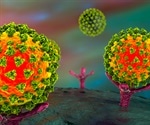
_441ce981e0344c3f83819cff83ecdab2-150x125.jpg)
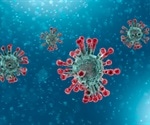
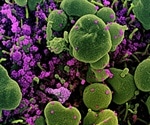
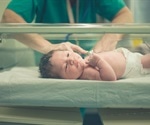
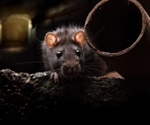
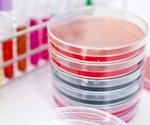

_6a59efb441af4d85bc726db926b7c157-150x125.jpg)
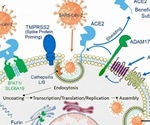
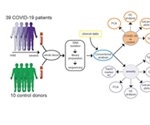
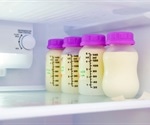

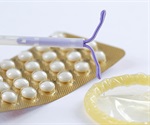
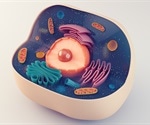
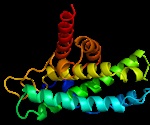



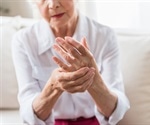
































No hay comentarios:
Publicar un comentario